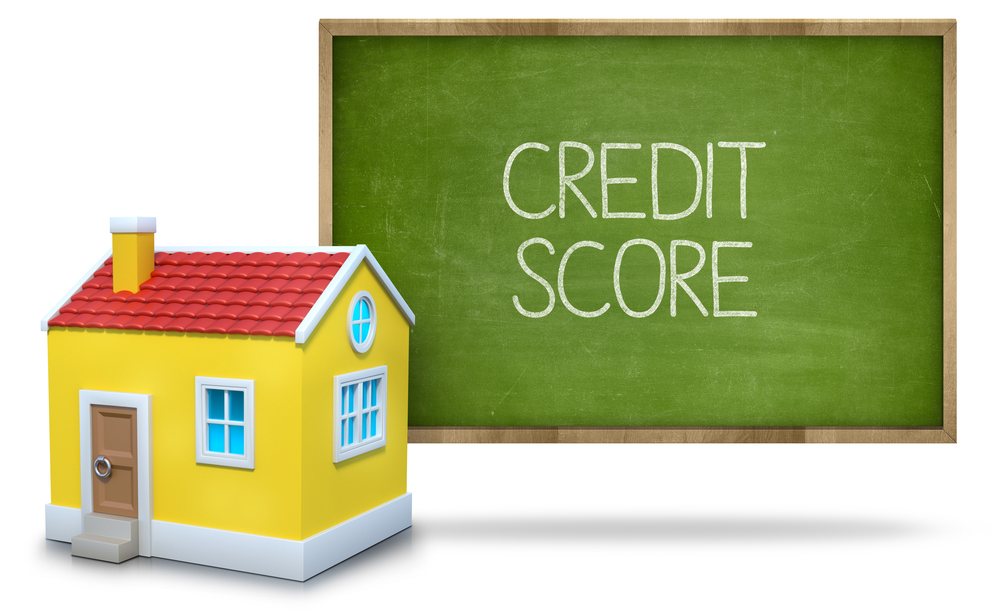What is a good credit score to buy a house?
Your credit score has a significant impact on your ability to get a home loan. It impacts not just your initial loan qualifying but also your interest rate, down payment requirements, and other mortgage terms.
So, how good of a credit score do you need to purchase a house?
It’s not so much that a specific score is required. It’s more crucial to understand how your credit score will affect your interest rate, loan size, and down payment.
Furthermore, mortgage lender requirements are not the same prior to the COVID-19 outbreak. Many people are requesting better credit ratings and larger down payments. A survey by the Mortgage Bankers Association says overall credit availability has decreased in both March and April of last year.
Are you planning to purchase a property and want to make sure your credit is in good shape? Here’s everything you need to know about it.
How Does Your Credit Score Affect Your Mortgage Opportunities?
Your credit score will be essential if you plan to buy a house. It will influence which financing choices you may even explore as a homeowner at the outset. Some loan kinds demand minimum credit scores of 640, while others require only 500.
Because your credit score indicates your degree of risk to a mortgage lender, it will influence the costs of your loan.
A higher credit score indicates that you pay your expenses on time and will likely repay your mortgage in the same manner. Hence, you’ll be able to take advantage of reduced interest rates.
However, if your credit score is bad, you’re a dangerous gamble for a lender. To compensate for the increased risk, the possibility that you won’t pay your loan will end up with them raising the interest rate to protect themselves.
Good Credit Score To Buy a House
Mortgage loans are divided into four categories:
- Conventional loans – supported by Fannie Mae and Freddie Mac.
- FHA loans, or USDA loans, are created for rural properties and insured by the United States Department of Agriculture.
- VA loans are meant for military personnel and veterans.
1. Conventional Loans
- Since conventional loans are guaranteed by private mortgage lenders rather than the government, qualifying standards differ from one lender to the next.
Fannie Mae and Freddie Mac-backed loans need a minimum credit score of 620. However, individual mortgage lenders are allowed to demand a higher score.
Conventional mortgages are more stringent than government-backed loans in terms of credit score and other characteristics like debt-to-income ratio and work history, so you’ll almost certainly need a better credit score than the minimum.
2. FHA Loans
- The Federal Housing Administration insures FHA loans, making them a viable alternative for applicants with low credit scores and little money to put toward a down payment. The credit score criteria vary depending on the amount of money you intend to put down. Borrowers with better credit may be eligible for a lesser down payment.
Here’s how it works:
- A min credit score of 500 is needed, and a 10% down payment.
- A minimum credit score of 580 is required and a 3.5 percent down payment.
3. VHA Loans
There is no minimum credit score requirement for VA Loans, exclusively offered to qualifying veterans, military members, and certain surviving spouses of veterans. Instead, lenders must “examine the full loan profile,” according to the VA.
The Credit Score That Lenders Consider
Depending on who gives the score (a bank, FICO, or VantageScore) and the lending business, your credit score differs (auto, mortgage, or credit card).
Most lenders will employ a “tri-merge” credit report, which shows credit information from three credit agencies to mitigate risk and guarantee that they’re obtaining the most accurate image of a mortgage borrower.
They may also utilize a “residential mortgage credit report,” containing additional financial information such as rental history or public records. These reports include information from numerous credit agencies, such as TransUnion, Experian, Equifax, etc.
In many circumstances, the credit score you see as a consumer through your bank or credit card provider is not the same as the credit score a potential mortgage lender sees. These are some of the most prominent factors lenders consider when assessing your creditworthiness.
- Your DTI ratio — The debt-to-income ratio (DTI) is computed by multiplying your total debt commitments by your gross income. This is significant since it demonstrates your ability to manage debt.
- How much credit you have — Your credit score is also affected by the quantity of credit. This ratio evaluates the amount of debt you have relative to the available credit quantity. Hence, any long-term obligations you can pay off before meeting with your mortgage lender will factor into how much you may borrow.
- History of Employment — Lenders normally want at least two years of work experience. However, this does not have to be with the same company. You’ll need two years of consistent income documented on your tax return to appeal to a lender if you’re self-employed.
- Down Payment — As a general guideline, you should put down 20% of the buying price as a down payment. People that put down 20% will receive better conditions, such as reduced interest rates and even a cheaper loan origination charge.
Why Is A Good Credit Score Important For A House?
Each lender has its algorithm for establishing a credit score’s cutoff threshold. According to experts, the higher your credit score, the more likely you will acquire a low-interest rate and favorable terms when applying for a mortgage. Someone with a credit score of 850 will almost certainly pay less per month than someone with a comparable house but a credit score of 680.
Final Word
Make efforts to increase your credit score. When you locate the house of your dreams, improving your credit score will help you prosper financially.
You should obtain a free copy of your credit report and review it for any mistakes. Register a dispute with the credit bureau that issued the report and the necessary proof if you uncover any. Correcting these errors might help you improve your score.
If you have Good Credit, don’t allow the prospect of tougher lending criteria to deter you from purchasing right now. Nobody knows if or when lending rules will shift once more. These norms might become the new normal.
You may enhance your chances of getting a home loan by making a determined effort to raise your credit score. A higher credit score might also help you qualify for cheaper loan rates and better terms. This can help you save money in the long run while also allowing you to reap the rewards of house ownership for many years to come.






